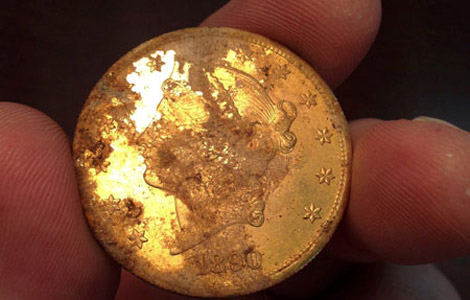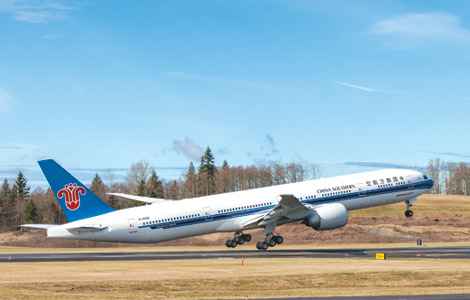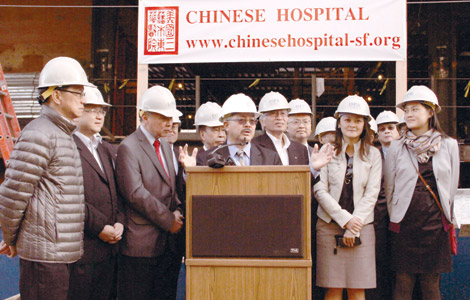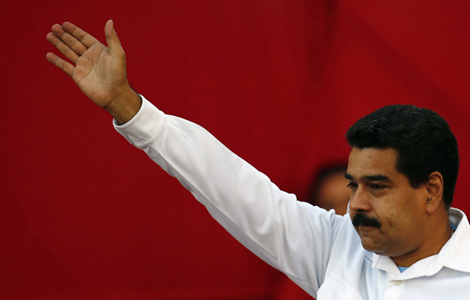Brazil Minerals to expand China presence
Updated: 2014-02-17 06:11
By JACK FREIFELDER in New York (China Daily Latin America)
|
||||||||
Brazil Minerals, Inc — a diversified Brazilian mining company with revenue from a number of precious metal operations — will increase its presence in China with a representational office in Beijing.
Brazil Minerals (BMIX) CEO Marc Fogassa said China is an incredibly important market for the growing Brazilian company.
"China is a large market for diamonds and an aggressive buyer of commodities and strategic minerals, including some of the minerals we have in our pipeline," Fogassa said in a press release. "As an outgrowth of some initial local conversations, BMIX has decided to focus more attention to this area of the world."
BMIX has been working to build business relationships with private- and state-owned establishments, according to the Feb 4 press release.
Precious metals — like copper and iron — are used in a wide variety of applications, including automobiles, construction equipment and electronic devices.
In recent years, China's massive infrastructure construction and ongoing urbanization process have brought on rapid demand for iron ore.
Brazil's exports of iron ore to China have soared to more than 170 million tons in 2013 from 38 million tons in 2003, more than a fourfold increase, according to data from the Brazilian government.
Zhang Tieshan, a senior analyst with industrial information provider Mysteel.com, said China would continue to occupy an important trade relationship with its Latin American counterpart.
"Brazil's iron ore exports to China have been increasing in the past five years and the trend will continue this way in the future," Zhang said in a January interview with China Daily. "Even though Australia is the biggest iron ore exporter to China, Brazil has a stable trading relation with China because they are both BRIC countries."
China became "the No 1 buyer of Brazilian exports" in the beginning of 2010, according to a March 2011 publication from The Brookings Institution, a Washington-based nonprofit public policy organization.
Brazilian exports to China increased to $21 billion in 2009 from $1.1 billion in 2000, while imports from China also rose to $15.9 billion from $1.2 billion over the same period, according to the Brookings report.
In the first half of 2010, China became the top buyer of Brazilian exports and the second-leading source of Brazilian imports, trailing only the US. "In terms of total trade flows, China is Brazil's main trading partner," the Brookings report said.
Brazil is home to the world's largest producer of iron ore and the world's second largest mining company — Vale SA, which ranks second only to Australia's BHP Billiton Ltd in terms of total revenues, according to web-based international mining publication Mineweb.
The latest full-year data from the US Geological Survey (USGS) shows that China imported more than 60 percent of the world's total iron ore trade in 2012.
Christopher A Tuck, an iron ore commodity specialist with the USGS, said in a January 2013 commodity summary report that iron ore consumption in Asia is "currently a key factor" for expansion in the region.
"Chinese companies are investing in all phases of mining and production," Tuck said in his report. "Despite overall weak iron ore prices, several major Australian producers planned to continue expansion."
Australia is the biggest iron ore exporter to China, followed by Brazil, India, South Africa and Ukraine, according to data from Black Iron Inc, a Canadian iron ore exploration and development company. The top four provide about 90 percent of China's iron ore imports.
Most Viewed
Editor's Picks

|

|

|

|

|

|
Today's Top News
US space telescope spots 715 more planets
Bags banned in Boston Marathon
Asiana fined $500,000 over SF crash
TPP talks in final stretch
Spotlight on Chinese publishing
Weibo faces modest growth in '14
Services top US firms' revenue
US planning full Afghan pullout
US Weekly

|

|













